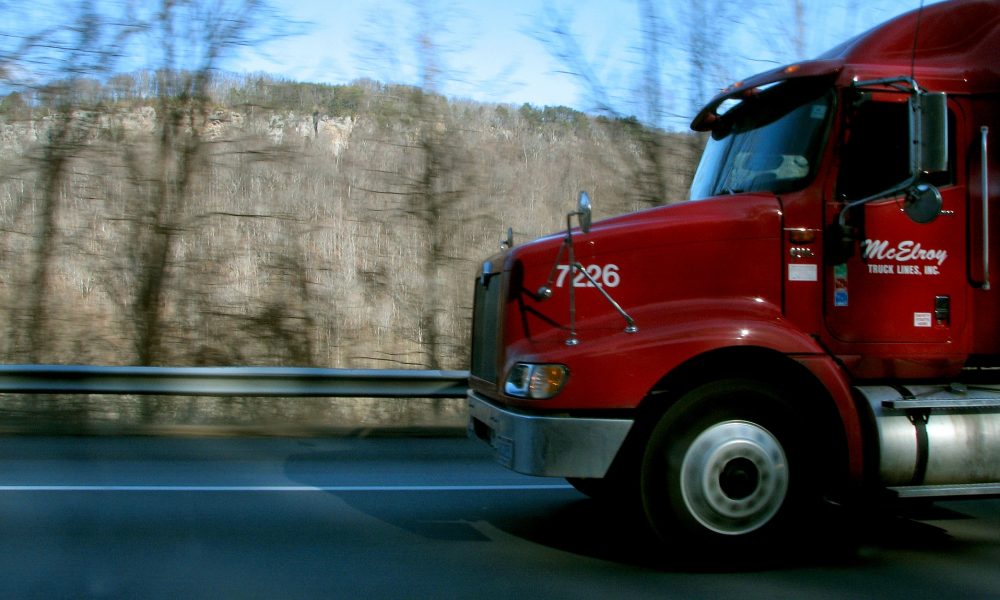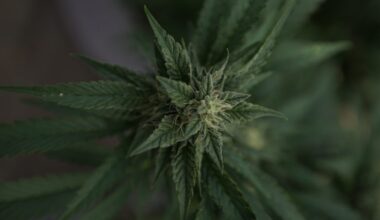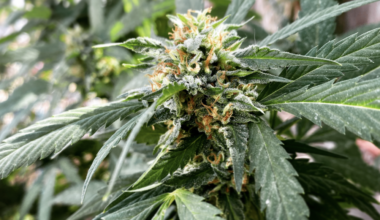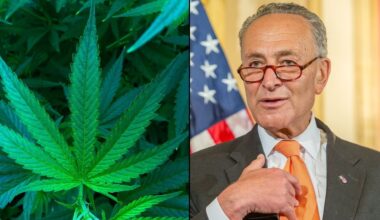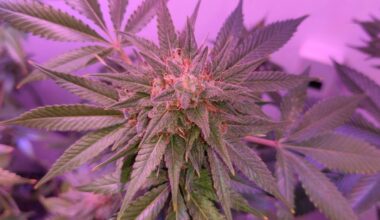U.S. Department of Transportation (DOT) policies on drug testing truckers and other commercial drivers for marijuana are unnecessarily costing people their jobs and contributing to supply chain issues, a congressman said in a letter to the head of the department on Monday.
Rep. Earl Blumenauer (D-OR) cited DOT data showing that tens of thousands of drivers are being disqualified because of stringent drug screening policies around THC. He said that while nobody wants drivers impaired on the roads, there aren’t tests that can detect active impairment—so people are being penalized for using cannabis while off duty, days or weeks before they’re tested.
“These disqualifications deny people the right to earn a living, reduce the workforce when drivers are desperately needed, and penalize people of color and patients who legally use medical cannabis,” he wrote. “This crisis must be treated with urgency.”
The congressman told Transportation Secretary Pete Buttigieg that his department “should rapidly reform requirements for testing drivers and returning them to service, as well as develop an accurate test for impairment.”
While Buttigieg hasn’t specifically weighed in on DOT marijuana testing policy, he did campaign on legalizing cannabis and decriminalizing other currently illicit drugs while running for president in 2020.
Blumenauer said that the statistics on drivers who’ve been disqualified over positive THC tests are troubling on their own, but the “true impacts of this policy are likely greater, given that many people will self-select out of the profession knowing the drug testing requirements.”
“Onerous requirements for returning to duty after a positive test also mean most of these drivers never return to work. Of 119,000 drivers prohibited from driving over the past three years, more than half have not even attempted to return. The Department of Transportation’s current policies towards these drivers contributes to supply chain backlogs and delays in critical deliveries across the American economy.”
For what it’s worth, DOT did recently propose a new drug testing policy that could have significant implications for workers who use marijuana off the job.
Current department policy mandates urine testing, which advocates and experts view as problematic because THC metabolites can stay in a person’s system for weeks after they use cannabis. But the proposed rule change would allow saliva-based tests as alternate option.
Depending on frequency of use, THC is generally detectable in saliva anywhere from one to 24 hours after use.
Further, the DOT proposal says there would be a “4 nanogram per milliliter screening test cutoff for THC,” which “would detect use of marijuana while eliminating possibilities of positive tests resulting from passive exposure.”
“To date, 48 states have enacted laws that, to varying degrees, relax their prohibitions against the use of marijuana,” the congressman’s new letter says. “Nevertheless, your department’s zero-tolerance policy sweeps up drivers who were unimpaired, drivers who have not used cannabis for weeks or even months, and drivers who have used federally-legal CBD oils.”
DOT did issue a notice in 2020 clarifying that workers in safety-sensitive positions under its regulations will not be tested for CBD. However, it urged caution in using products containing the cannabis compound because they can trigger positive drug tests for marijuana.
“Blanket disqualifications are unjust, unfair, and cause widespread economic and social damage,” Blumenauer, a co-chair of the Congressional Cannabis Caucus, said. “Thousands of driving positions are unfilled, compounding our supply chain woes. Penalizing safe drivers who comply with state cannabis laws harms both the drivers and the supply chains they support.”
He added that punitive policies around marijuana and drug testing have had a racially disparate impact, as people of color are significantly more likely to be targeted by them even though there are comparable rates of cannabis use across races.
“Paired with stringent drug testing requirements and inaccurate tests, this means countless truckers of color are denied the right to earn a living because of past punishments for drug use, and face significant barriers to returning to service after a punishment,” the congressman said. “Additionally, failing to account for state-legal medical marijuana prescriptions in sweeping prohibitions discriminates against patients despite compliance with their doctor’s recommendations and their state laws.”
“As the United States continues to confront the supply chain crisis, your department should lead the effort to research more reliable cannabis test options and develop new tools that avoid sweeping up innocent drivers while also keeping our roads safe from those who are truly impaired,” he wrote.
Blumenauer said that one potential vehicle to promote marijuana research would be his own bill, the Medical Marijuana Research Act, which cleared the House last month.
“The federal government should be making it easier for already-qualified drivers to stay in the profession, not forcing them away. Outmoded and unfair federal drug policies are out of step with reality and directly contribute to the trucking shortage crisis. Too many of the 2.8 million Americans who hold commercial driver licenses are not working because of past cannabis tests and the difficulty they face re-qualifying for duty. Getting these trained, qualified, and capable drivers back on the road will unsnarl supply chains faster and more efficiently.”
“I am very interested in the steps your department is taking to ensure these qualified drivers have opportunities to return to work, regardless of their past cannabis use,” the letter concludes. “Modernizing your department’s regulation of cannabis use is critical to ensure those who want to drive can contribute to this effort. I look forward to your partnership in this effort.”
Workplace drug testing issues continue to be raised, especially as more states move to legalize cannabis in some form and many industries are facing workforce shortages.
For example, appropriations legislation and attached reports passed by the House last year directed federal government agencies to reconsider policies that fire employees for using cannabis in compliance with state law.
The White House Office of Personnel Management (OPM) recently issued a memo to federal agencies that says admitting to past marijuana use should not automatically disqualify people from being employed in the federal government.
In February, a top Wells Fargo analyst said that there’s one main reason for rising costs and worker shortages in the transportation sector: federal marijuana criminalization and resulting drug testing mandates that persist even as more states enact legalization.
The prior month, a coalition of more than two dozen congressional Democrats filed bill on promoting workplace investment to combat climate change, and they want to boost the workforce nationwide by protecting people in legal marijuana states from being penalized due to federal drug testing policies.
Read the letter on DOT policy on marijuana testing for drivers below:
Image courtesy of blinkend from Pixabay.
Medical Disclaimer:
The information provided in these blog posts is intended for general informational and educational purposes only. It is not a substitute for professional medical advice, diagnosis, or treatment. Always seek the advice of your physician or other qualified healthcare provider with any questions you may have regarding a medical condition. The use of any information provided in these blog posts is solely at your own risk. The authors and the website do not recommend or endorse any specific products, treatments, or procedures mentioned. Reliance on any information in these blog posts is solely at your own discretion.
